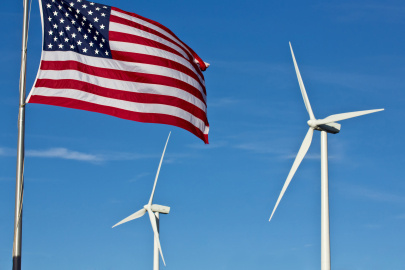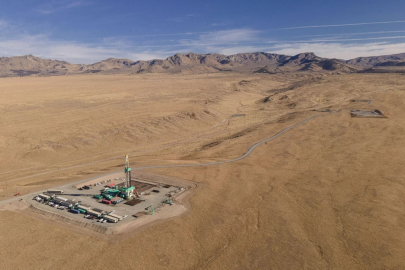-
 EERE is committed to bringing the benefits of energy innovation to every American by making the United States a global leader in renewable energy and energy efficiency technologies.
EERE is committed to bringing the benefits of energy innovation to every American by making the United States a global leader in renewable energy and energy efficiency technologies.
Energy reliability is the ability of a power system to consistently deliver power to homes, buildings, and devices—even in the face of instability, uncontrolled events, cascading failures, or unanticipated loss of system components. Energy resilience is the ability of the grid, buildings, and communities to withstand and rapidly recover from power outages and continue operating with electricity, heating, cooling, ventilation, and other energy-dependent services. Energy resilience increases energy reliability and renewable energy sources can help support a resilient, reliable energy system.
Resilient, reliable energy is critical to the well-being of every American. It keeps life-saving hospital equipment and communications systems operating, buildings at safe temperatures with good ventilation, and American workers to go about their business without interruption. Energy infrastructure—facilities or equipment used to generate, deliver, process, or produce energy—that can withstand and quickly recover from disruptions is resilient and reliable infrastructure.
A resilient and reliable power system reduces the likelihood of long-duration outages over large service areas, limits the scope and impact of outages when they do occur, and rapidly restores power after an outage.
What Makes Energy Resilient?
Power outages can be caused by extreme weather, breaches in cybersecurity, high energy demand that overloads the electric grid, failure of aging equipment, and physical interference with equipment. Grid disturbances are changes in electrical voltage and frequency on the grid that can lead to power outages.
A resilient electric grid distribution system uses local resources, such as solar panels and battery storage in homes and buildings, to quickly reconfigure power flows and recover electricity services during a disturbance. The approach to modernize the grid and increase resilience focuses on integrating distributed energy resources, advanced controls, grid architecture, and emerging grid technologies at a regional scale.
Strong resilience measures in building energy codes can also ensure that new construction and major renovation projects minimize energy use, maximize comfort, and enhance potentially life-saving resilience benefits. Building owners and operators, communities, and local and state governments can strategically plan to increase resilience using these resources.
What Makes Energy Reliable?
When we diversify our energy mix by adding more types of energy to the grid, we increase our energy reliability. The rise of renewable power, which comes from unlimited energy resources, like wind, sunlight, water, and the Earth’s natural heat, has the potential to vastly improve the reliability of the American energy system. Currently, renewable energy generates about 21% of all U.S. electricity, and that percentage is rising quickly.
A reliable electric grid distribution system can continue to deliver electricity to homes and buildings regardless of any disruptions or disturbances. The approach to modernizing the grid to increase resilience and reliability focuses on integrating distributed energy resources, advanced controls, grid architecture, and emerging grid technologies at a regional scale. DOE efforts, like the Energy Storage Grand Challenge Roadmap, will increase resilience. DOE’s Grid Modernization Initiative works with public and private partners to develop concepts, tools, and technologies needed to measure, analyze, predict, protect, and control the grid of the future.
Improving Reliability Through Energy Storage
Energy storage technologies can improve energy reliability by making surplus energy available whenever it is needed, such as during a power outage.
Pumped storage hydropower is responsible for most U.S. commercial energy storage capacity and has been used for more than 100 years. Wind energy and solar energy can be captured and stored for later use with batteries, and researchers are investigating geothermal energy storage.
Energy storage is also essential to efficient transportation. EERE invests in research and development of hydrogen storage and batteries to ensure on- and off-road vehicles can reliably move people and goods from one place to another.
The U.S. Department of Energy's Energy Storage Grand Challenge is a comprehensive program to accelerate the development, commercialization, and use of next-generation energy storage technologies. As part of this program, the Long Duration Storage Shot™ aims to, within the decade, reduce the cost of grid-scale energy storage by 90% for systems that can provide energy for at least 10 hours in duration.
Energy Reliability and Resilience News
-
 EERE invests in research, development, and technology-validation to help modernize the American energy system and position the United States to lead the world in the technical fields that will soon dominate the global energy market.January 17, 2025
EERE invests in research, development, and technology-validation to help modernize the American energy system and position the United States to lead the world in the technical fields that will soon dominate the global energy market.January 17, 2025 -
SuperTruck Charge projects will accelerate deployment of large-scale public EV charging infrastructure for medium-and heavy-duty EVs to improve grid resiliency and reliability.January 15, 2025

